WILD IDEALS
Pilanesberg’s new luxury venture joins the drive to grow conservation space
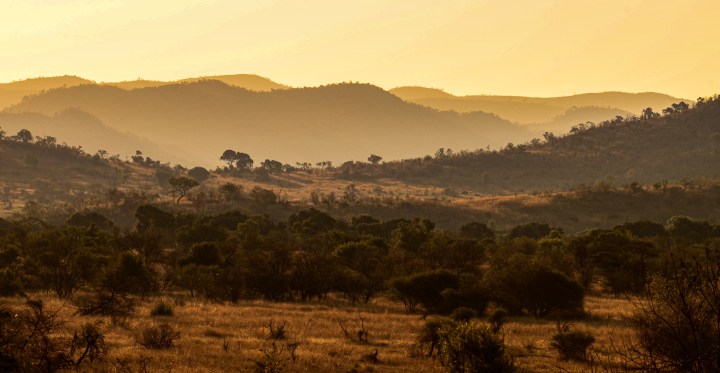
The appearance of the private Black Rhino Reserve and its luxury lodges in the northwest corner of a popular national park is in line with tourism and conservation trends in South Africa.
‘There’s a beauty,” says Andrew Jackson as we exit a grove of tamboti trees and take in a large, wide-lipped pachyderm, horn cut and squared off, resting peacefully beneath a budding blackthorn tree.
Fewer than three hours from the concrete sprawl of Johannesburg and Pretoria, the Black Rhino Reserve is 2,000ha of private land in northwestern Pilanesberg with a handful of lodges within its boundaries.
Jackson is the resident ecologist. We’ve just returned from a firebreak, where a few lodge guides from the reserve volunteered their services to help Pilanesberg National Park staff fight a fire that had jumped from community grazing lands into the reserve overnight. The tension of the past hour is relieved by the young rhino bull’s calmness, his poor eyesight not registering our presence yet.
When it gets up with a start, ears alert and ready to flee, I sink to my knee, lens extended, and shoot a few stills before settling in to observe a moment of magnificence. This large, unthreatening creature, perfect in its creases and curves – even without its horn – reminds me that Pilanesberg National Park was the last place I saw its temperamental black “cousin”, that of the hooked lip, exactly a year ago.
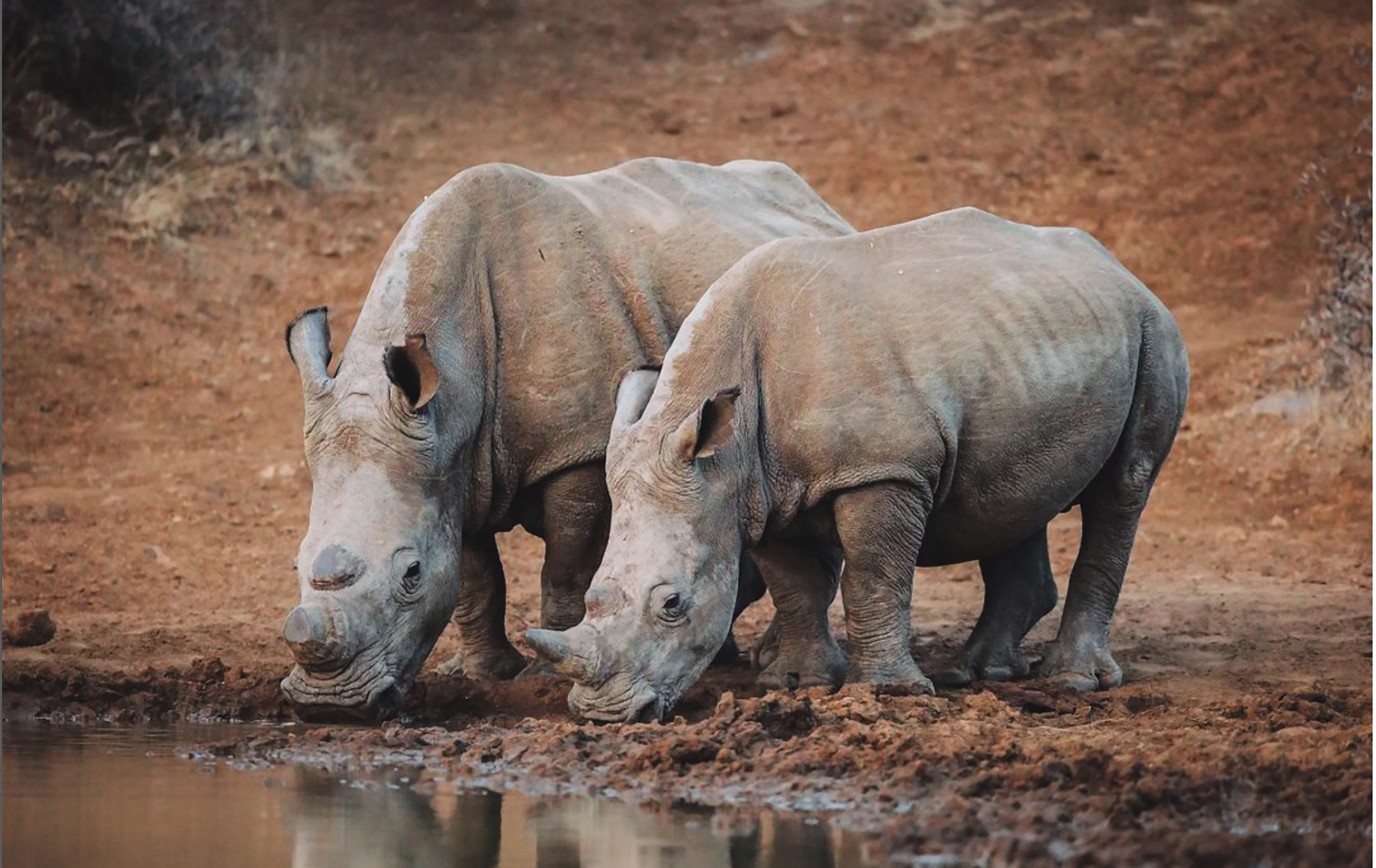
Rhinos, even if they have been dehorned, provide tourists with memories for life. (Photo: Lush Private Game Lodge)
Dehorned and etched against early-morning horizon light, it had been a stretch for my full zoom lens as it grazed on a bush in a recently burned patch of veld.
My children were with me then, avid wildlife enthusiasts visiting from their new home overseas. I hope they hold on to that experience – a bit like the obstinate Englishman cameraman who, against advice, tried to film a pair of mating black rhinos in thick Zululand bush. The sound of 750kg of squealing muscle thundering unseen through a world of thorns remains in mind.
That’s what Africa does: it creates embedded memories, and a longing to return.
Utopian dreams and realities
Nurturing utopian dreams has become a complex and varied business in 21st-century South Africa. To attract and receive visitors from around the world, the country’s parks and reserves need to be responsibly managed. This involves well-maintained infrastructure, the sustainable conservation of species, collaboration with rural communities and provision of a range of accommodation, from camping to luxury lodges.
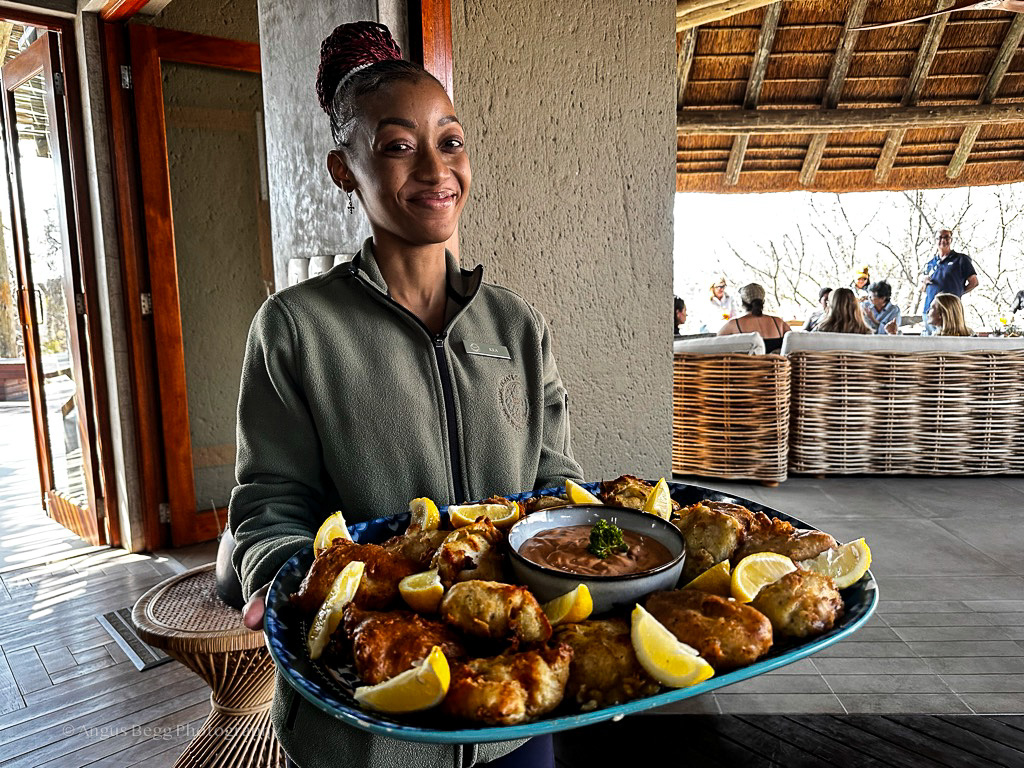
Keabetswe Molete, Lush’s spa therapist. (Photo: Angus Begg)
The 55,000ha Pilanesberg National Park requires significant funding. With public tourism and conservation budgets under intense pressure owing to multiple real, imagined and alleged financial peculiarities, financing responsibility falls increasingly on private-sector shoulders.
As numerous private lodges inside the Kruger National Park provide significant public revenue, so too do private lodges in the Black Rhino Reserve – via visitor bed-night levies and gate fees.
Read more in Daily Maverick: Riveted to the spots – passionate love of leopards unites thousands in ‘phenomenal’ citizen science project
Brenno Lupini, a partner in a family bakery business, invested in property in the reserve. “We wanted to support the overarching conservation aspect of Pilanesberg’s expansion as a wildlife destination,” says Lupini, owner of the Lush Private Game Lodge. He saw great business potential in a high-end lodge close to Joburg and Pretoria.
Lush and neighbouring establishments are working towards “an exclusive tourism destination” with a “Big Five” experience near the big city. In line with the idea of conservation making socioeconomic sense, lodges provide not only employment, but try to nurture careers in hospitality.
For example, Keabetswe Molete and Una Phiri, who were once freelance spa therapists for various lodges in the area, now work full-time at Lush. Phindile Singwane, the lodge’s sommelier, says she’s been a waiter in the Kruger, a butler and then a stock controller with Singita lodges.
“I can’t think of working in any other industry,” says Singwane, while trying to sell me a R700 bottle of wine.
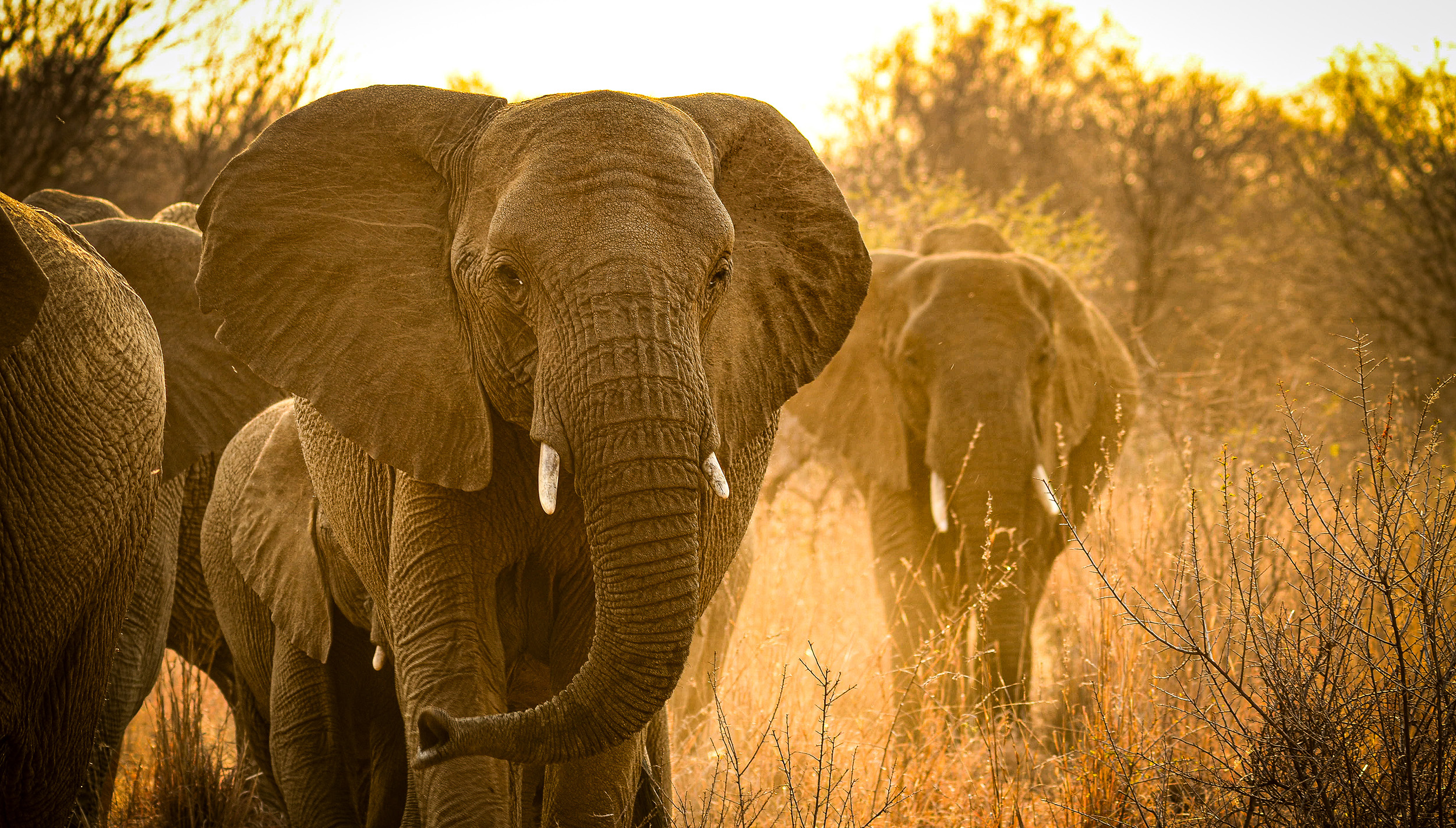
Black Rhino Reserve ecologist Andrew Jackson says the number of elephant in the Pilanesberg National Park is close to the maximum the park can accommodate. (Photo: Angus Begg)
The weekend safari
Lupini says top of mind when choosing where to invest was ease of travel, particularly with increasingly potholed provincial roads. The N4 highway from Pretoria offers direct access to the Black Rhino Reserve, 20 minutes north of the national park’s Bakubung gate. It is a two-and-a-bit-hour drive, as opposed to seven hours to the central parts of the Kruger.
Comparisons between South Africa’s parks and reserves are inevitable, yet Lush head guide Jacques Kruger, who has worked in both Pilanesberg and Greater Kruger for many years, says each is unique.
Read more in Daily Maverick: Hume’s herd of 2,000 African rhinos get a last-minute ‘lifeline’ in major purchase and rewilding project
Jackson speaks of Pilanesberg getting “under the skin and into the soul”. He says, with the reserve being an ecotone – a transitional region between two adjacent ecosystems – the variety of species in the hills and valleys is compelling.
Being just outside the concentric Pilanesberg volcanic hills, Jackson says the Black Rhino Reserve has a slightly different habitat, with species of animals and birds “not commonly seen in Pilanesberg itself”.
He cites red-crested korhaan, pied babblers, three species of vultures, honey badger, pangolin and white-tailed mongoose among them. This is echoed by Pilanesberg field ecologist Steve Dell, who’s been there for 17 years. “Open plains, woody thickets, bushveld, mountain veld, kloofs and gullies – we have it all, and the wildlife that inhabits them.”
It’s this landscape that Jackson, Lupini, Singwane and Dell and his North West Parks colleagues strive to protect and expand.
There is just something about the Pilanesberg. I don’t know if it’s the magnetic field in the mountains or the water, but this place is home.
Lupini sees the Black Rhino Reserve as a strategic partner in the northwestern corner of the park, “a step towards the heritage park concept” that would link Pilanesberg National Park with the 60,000ha Madikwe Game Reserve 75km away, allowing, according to the park’s website, “a bigger migration space for animals and creating a prime combined ecotourism destination that would ultimately link up with Botswana”.
Connecting the two parks has not seemed feasible hitherto because of mining activity and limited buy-in from local landowners.
“The lure of large sums of money for mining is huge, providing immediate incentives,” notes Jackson. “But, in the long run, it is not sustainable. What happens in 15, 20 years, when the mine is closed and moves on? Ecotourism is long term and secure, providing for generations to come.”
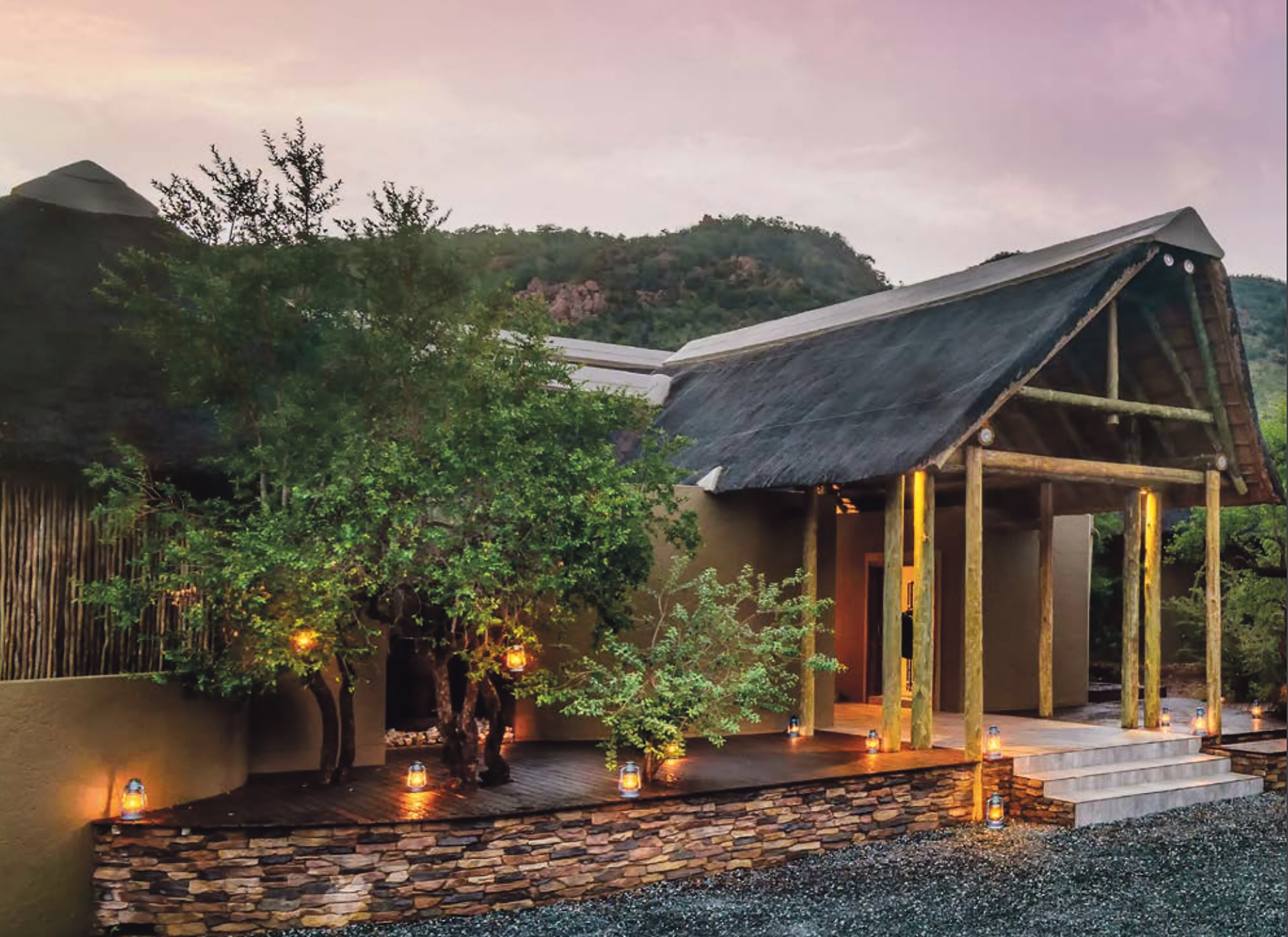
The entrance to the Lush Private Game Lodge in the Black Rhino Reserve. (Photo: Lush Private Game Lodge)
That makes the Black Rhino Reserve and other private lodges important in growing conservation space.
Like Madikwe, Pilanesberg used to be farmland, with research revealing that the land had to be “repaired” between 1969 and 1979. Alien plants were removed, eroded land was rehabilitated and houses and windmills were knocked down.
Six thousand animals were relocated in Operation Genesis, then the largest game translocation in the world (until the later Operation Phoenix in Madikwe, which translocated 10,000 animals).
“There is just something about the Pilanesberg,” says Kruger. “I don’t know if it’s the magnetic field in the mountains or the water, but this place is home.” DM
This story first appeared in our weekly Daily Maverick 168 newspaper, which is available countrywide for R29.





















 Become an Insider
Become an Insider
The private side of Pilanesberg (Black Rhino Lodges) is very nice, but unaffordable for the average South African. The “public” part of the park is in an abysmal state. The tar roads have more pothole surface area than tar, and the dirt roads are nigh impassable except in a high-ground-clearance vehicles. The Manyane camping site just outside the Manyane Gate is a study in mismanagement and inefficiency. The “luxury” tents are barely usable, the ablution facilities are in complete disrepair, and worst of all there have been several robberies at the resort.
I was there just two weeks ago, and whilst the game viewing was nothing short of spectacular, the above issues make it that I won’t go back. I would say that the only way for the greater Pilanesberg to have a viable future is to privatise the entire park, similar to Madikwe.